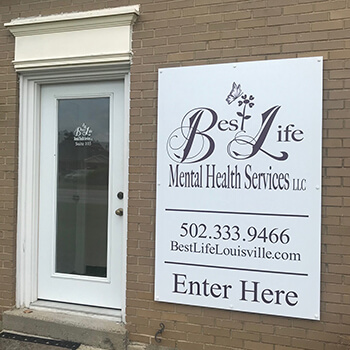May is both Asian American and Pacific Islander (AAPI) awareness month and National Mental Health Awareness Month. As time has passed, mental health has been brought to the spotlight, which in turn has helped reduce the overall stigma. This has played an essential role in people getting the support they need. However, mental health is still seen as taboo in Asian American communities reducing the number of individuals willing to reach out for help.
Overcoming cultural stigma is one of the most significant barriers to taking care of mental health because it can be associated with shame and weakness. In fact, according to the National Alliance on Mental Illness, “AAPIs have the lowest help-seeking rate of any racial/ethnic group, with only 23.3% of AAPI adults with a mental illness receiving treatment in 2019.”
For many of us in the Asian American population, there was never a space where it felt safe to talk about our emotional needs. As a Licensed Professional Counselor Associate, one of my goals is to help spread mental health awareness in the AAPI community.
We all have mental health
Mental health is a conversation that pertains to everyone because we all have it. Our mental health is one aspect of our overall health and wellness. We shouldn’t view it differently than our physical health. Experiencing challenges with our mental health doesn’t make us weak; it makes us human. Anyone can struggle, so it’s up to us to care for our mental health. We need to challenge the myths that we’ve been led to believe about mental health and encourage our community to do the same.

The AAPI population faces unique struggles
There are a lot of struggles unique to Asian Americans that make our experience in this country a difficult one to navigate, from racism to stereotypes that hurt all minorities.
The pandemic started a spike in anti-Asian hate crimes that brought concerns of the Asian American communities into the spotlight. It forced many of us to reflect on the hardships of being a part of this community, not just from racism and prejudice but from the pressure to succeed and bring honor to our families.
There are many barriers to mental health care for Asian Americans, including:
- Language barriers
- Stigma and shame
- The model minority myth
- Insufficient health insurance coverage
- Immigration status
- Faith and spirituality
- Traditional/non-western medicine
We must begin breaking through these barriers so everyone can access the help they need.
Expressing a struggle with mental health does not make you ungrateful
One of the unique challenges you may be facing is not wanting to seem ungrateful for what you’ve been given. Many AAPI people have relatives who made great sacrifices in order for them to have the life they do. They lived through difficult situations in order to better the future of their families. If this is your family’s story, you may be scared to say anything that seems like you don’t appreciate that sacrifice.

Knowing that your relatives experienced trauma in their past may make you hesitant to acknowledge and share the mental health challenges you’re facing today. You may feel that if they were able to overcome their circumstances, you should be able to overcome yours. Unfortunately, this belief may be stopping you from getting the help you need to feel your best.
Seeking help for your mental health does not make you ungrateful or weak. On the contrary, you can show appreciation for the sacrifices made by taking advantage of the resources you have available to you today to live a healthy and happy life.
Silence is not necessarily a sign of strength
It’s common for AAPI people to grow up in homes where silence is a sign of strength. It is viewed as you being independent to handle yourself and your circumstances. Your family may have viewed showing emotion as a weakness. So instead of showing emotion, you were expected to put your head down and work harder to achieve success.
If this is how you were raised, admitting you need help and working with a therapist may feel like a failure to you. This should not be the case. Acknowledging that you need help and taking action to find it is one of the strongest things you can do.
Addressing the pressure of the model minority
The pressure to be perfect is a heavy one that is impossible to achieve all the time in everything you do. Eventually, you will mess up, and you need to know that it’s okay.
The model minority stereotypes Asian Americans as smart, wealthy, hard-working, obedient, and never in need of assistance. While this might seem like this is how you should want people to think of you, the stereotype places unrealistic expectations on us. The pressure to meet these cultural expectations can feel overwhelming and possibly lead to anxiety and depression.
We are told not to take up space and be meek and mild. We are expected to hold our heads up and reach perfection while neglecting our own needs and pretending they never existed in the first place. And we all know these expectations are unrealistic. Still, they guide our lives and allow no room for shortcomings. There is no acceptance of our present selves because we feel pressure (internally and externally) to continue pushing forward to achieve something bigger and more significant.
Your accomplishments never feel like enough, leaving you feeling like you’re not enough.
Please know this, you are worth more than just your accomplishments and accolades. Even if you are never the best at anything, you still have value and deserve love from yourself and others.

How can we move past the model minority stereotype?
It’s essential to acknowledge the impact that the model minority stereotype has on your life. Self-awareness can play a critical role in healing from and moving past it. Think about the things that bring you joy and fulfillment when considering what path you choose for your life. Consider why you have made decisions in the past. Then consider if you would make them differently today if you weren’t allowing the pressure of the stereotype to lead the way.
If your expectations and what you want in life are different from your family’s expectations for you, consider speaking to them about it. This may feel intimidating if your family doesn’t openly have these discussions. You may benefit from speaking with a therapist.
Being able to talk about your emotions and past experiences takes time, especially if you have never felt safe doing so before. Therapy is designed to be a safe, nonjudgmental space that offers acceptance no matter what you bring to the space. Everyone can benefit from therapy, even if it feels like there is not much to talk about from the start. Learning more about ourselves and how to apply new skills is beneficial to all of us.
How to choose a therapist as an AAPI person
Therapy can play an important role in the healing process. Here are some things to keep in mind when looking for a therapist if you are interested in exploring therapeutic options.
You don’t need to work with the first therapist you find
There are many different mental health professionals with different specialties and experiences. It’s a good idea to interview several before choosing one to work with. Here are some questions you can ask:
- Have you completed cultural competence training?
- Have you worked with Asian Americans in the past? How was it different than working with others?
- What role does intersectionality play in your therapy practice?
- Are you experienced in race-based trauma?
- What have you done to explore your implicit biases in working with minority populations?
Choose a therapist you’re comfortable with
You don’t have to push through with a therapist you don’t like. The ability to trust your therapist and open up to them is crucial in the therapy experience. If you don’t like your therapist, find a new one. This is especially important when coming from a culture where mental health is not openly discussed. However, keep in mind that it can take a few sessions to build trust with a therapist.
Look for a therapist experienced in what you’re seeking help for
While your first preference may be to find someone experienced working with the AAPI community, it’s also important to choose someone experienced in the area you are looking for help. For example, if you have anxiety symptoms, choose a therapist with experience treating anxiety.
You deserve to work through emotional pain successfully
Self-compassion and grace are necessary ingredients to work through emotional pain and improve your mental health. You are deserving of both these things even if they weren’t given to you in the past.
As mental health continues to enter the conversation, I will continue to work to spread awareness and share resources that speak directly to the Asian American community. If you’re interested in learning more or finding support, I encourage you to check out this Asian American & Pacific Islander Mental Health Resources list or schedule a consultation for therapy through the button below.



